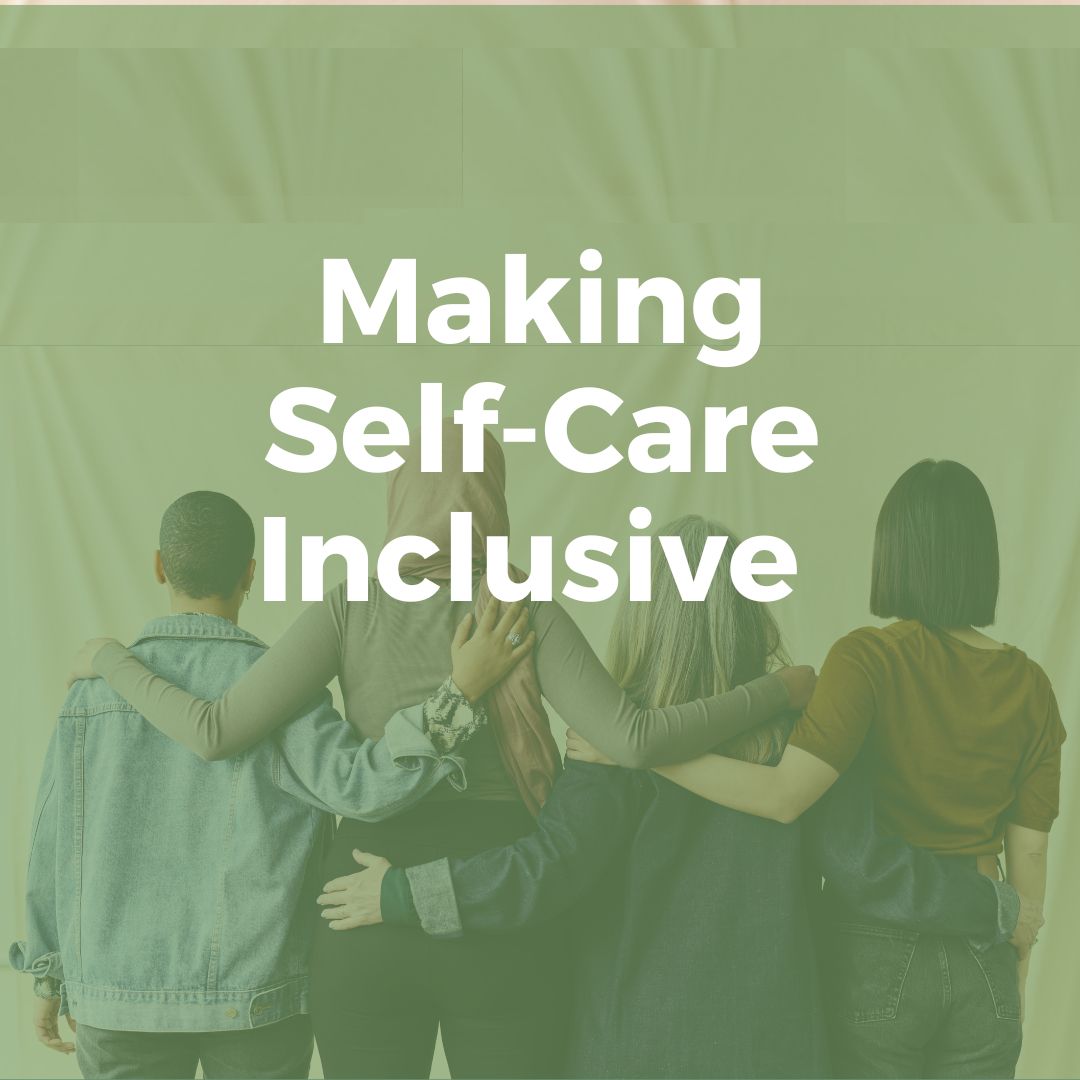
The Point
Sometimes self-care can be centered in white-dominant culture. How can we all benefit from the de-centering of whiteness in self care? Today we are diving deep into just that.
Finding Self-Care That Fits
Self-care can feel elusive. It can feel performative. Sometimes, it can be as easy as taking an intentional breath, other times it can be hard work. And, oftentimes, it can be rooted in white-dominant culture. When discussing self-care, there are often jokes and references to indulging in some adult beverages or binge-watching tv. And, while these practices might address an urgent need to unwind, they don’t support creating preventative or reflective practices that are at the heart of self-care.
At its root, self-care is putting into place habits and practices that attend to your emotional, mental, physical, social, and spiritual health. Too often, we discuss the matters of health as a good/bad dichotomy – carbs are bad, protein is good; fat is bad, skinny is good; rest is bad, productivity is good.
Many of these messages also come with stigmas, stereotypes, and societal expectations: therapy is for people who are broken, men can’t be sad, women can’t be angry, and so on. In reality, the topic of health is far too complicated and far too personal. This means that our approach to self-care is also likely to be complicated and multi-faceted if it’s going to be personal.
One Size Doesn’t Fit All
Allow yourself the opportunity to engage in some trial-and-error as you look for the right fit.
Approach it Holistically
Try starting with identifying 2-3 practices that seem appealing. Not sure where to start? Consider identifying one practice to meet your health needs for your mind, body, and spirit.
Trial Period
Allow yourself a trial period of 2-4 weeks to regularly participate in these practices then assess:
- Was this practice helpful?
- Did this practice offer me relief or support my sustainability?
- Remember, some practices that are helpful might not always be enjoyable in the moment – saying no might feel intimidating, going to therapy might not be easy – but the impact is worthwhile
Give Yourself Grace
This attempt at self-care might be different from others, and likely looks different from previous expectations you’ve had around self-care. When our reality doesn’t match our expectations, we can feel discouraged. Give yourself space and time to adjust. If you start with the premise that there don’t have to be clear expectations, exploring self-care practices might be more meaningful.
Resources
Looking for content to dive deeper into this topic? Check out these links below for further readings and a podcast related to this topic.
Articles:
Other Resources:
- Black-led resources for mental health
- Self-Care and Support Materials for BIPO
- National Museum of African American History & Culture: Self-care
The Author

This edition was written by Tawar Khalandi – a former The Educator Academy resident & grad; a current The Educator Academy Alum and Coach. As a new mom, Tawar is relearning and reimagining the meaning and purpose of self-care. And, in all honesty, trying to reprioritize it with varied success. In ongoing efforts to engage in self-care practices, one way Tawar hopes to make it more sustainable is by customizing her practices to her needs. Most days, there are only a few extra moments to spare – just enough time to jot down one or two things to be grateful for (her son, Emmy, often makes the list even though he’s usually the cause of the chaos).

